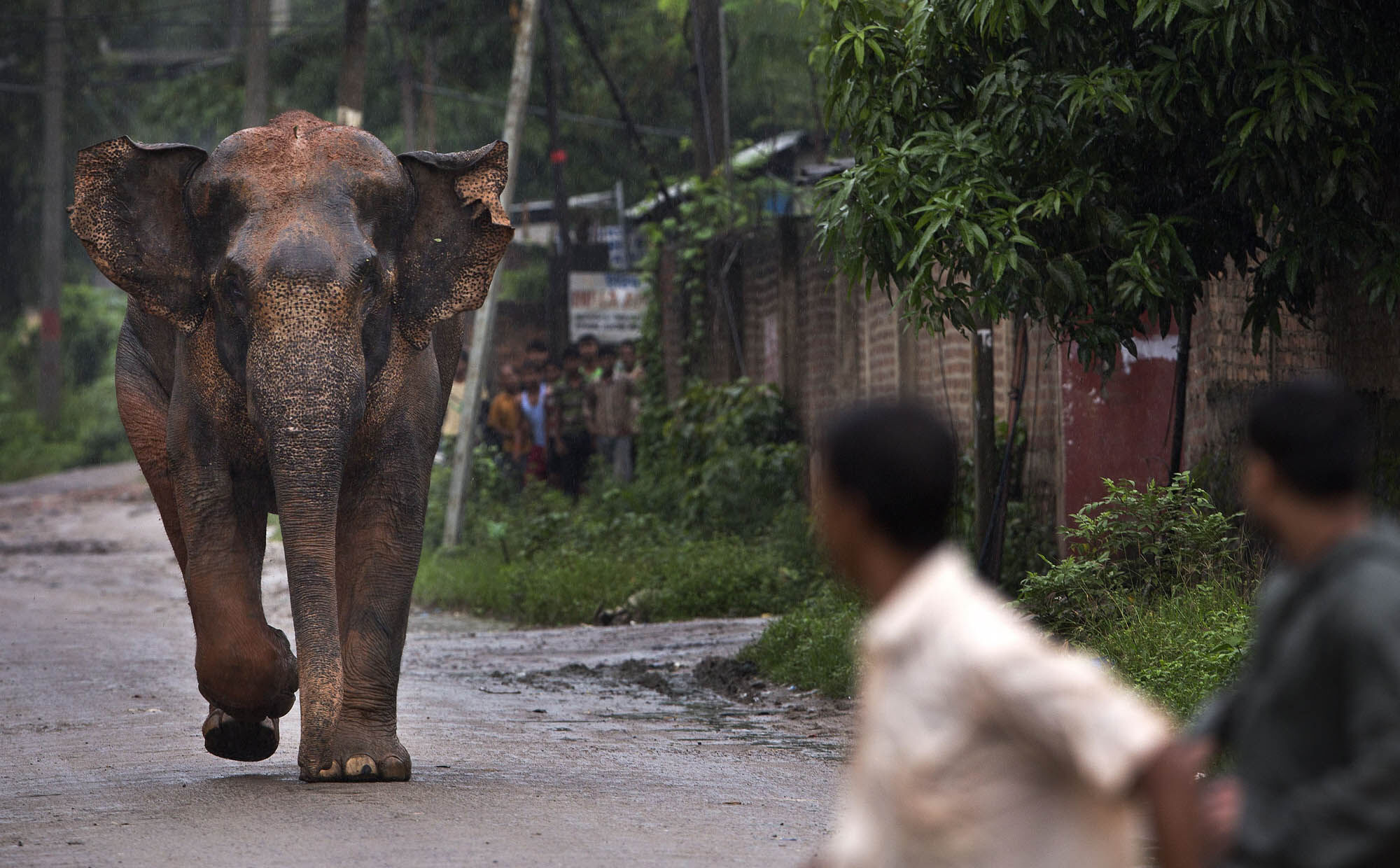Assam faces rising human-elephant conflict despite Govt claims of mitigation measures

Guwahati, Dec 19 (PTI) Assam which has the country's second highest elephant population is facing a rising trend in human elephant conflict as the forests in which pachyderms roamed gets fragmented as farms and tea gardens come up.
Train accidents, electrocution, poisoning, `accidental' deaths like falling into ditches and even lightning strikes have led to the deaths of some 71 elephants while conflict between the tuskers and humans have seen 61 people killed during the year.
Over the last ten years a total 812 people and 900 elephants were killed as competition for land intensified. Fueled by a combination of a population boom and poverty, man has expanded his frontiers, while animals have found their jungles shrinking. "Fragmented, degraded, shrinking and encroached habitats have led to man-elephant conflicts leading to electrocution, poisoning and train hits, Elephant Foundation's Kaushik Barua said, adding "this is now the 'story of Assam's elephants in the wild .at this rate, the elephant numbers that we are proud of stands to slip'', Assam currently has an estimated population of around 5,700 elephants, second only to Karnataka's more than 6,000.
Speeding trains which claimed four lives within less than a month have been a major cause for concern spurring both the state government and railway authorities into action.
'The state government has constituted and notified coordination committees comprising all stakeholders with the local range officer as the member secretary to coordinate to save elephants from accidental deaths'', Minister for Environment and forests Parimal Suklabaidya told PTI.
Vulnerable section of railway tracks prone to elephant death have been identified for monitoring by frontline and railway staff while signages are displayed at vulnerable points to alert train drivers about the possible presence of elephants near the railway tracks, he said.
Cleaning of vegetation along the railway track are done regularly to allow unhindered and clear view to the loco pilot, anti-depredation squads have been formed to avert any elephant fatalities due to train hits and trained elephants or kunkis' have been deployed to monitor the movement of wild elephants, the Minister added.
Northeastern Frontier Railway spokesperson Guneet Kaur told PTI that there are many instances of alert loco drivers who have saved elephants from being hit but in the recent incidents no information from forest officials or villagers on the movement of animals was received by the nodal railway officials.
'After recent incidents, NF Railway has decided to conduct a detailed enquiry and has imposed caution during train movement along with reassessment of notified elephant corridors being taken up in coordination with the forest department'', she said.
All train drivers and trackmen have been counseled to observe all permanent and temporary speed restrictions in notified sections while staff of pantry car and train passengers are being sensitized not to throw any eatables near the railway tracks so that elephants or any other animal are lured, Kaur added.
Experts, however, point out that the increasing number of deaths of both human beings and wild elephant is worrisome and the approach adopted by the concerned authorities was also a matter of concern.
Forest staff in the elephant inhabited areas and corridors need to establish cordial relation with the local people, including the village defense patrol groups to initiate a regular flow of information on movement of elephants near railway tracks or in the villages which can reduce the casualties and accidents, Bibhab Talukdar, noted environmentalist and Secretary-General of biodiversity organization Aaryanak', told PTI.
Poisoning and deliberate electrocution of wild elephants are symptoms of unhappiness of local communities due to crop or household damage in villages outside the forest area and sometime human deaths caused due to conflict.
Environment Minister Suklabaidya said at vulnerable locations, solar-powered fences have been erected to avoid damage to human life and property by wild elephants and anti-depredation squads have been constituted in all conflict prone forest divisions of the state.
Ex-gratia payments for the loss of human lives and damage to property are being paid regularly, he claimed.
Local villagers are sensitized regularly and fire crackers, kerosene oil, torch light and batteries are distributed among the villagers in the conflict prone areas to support them in anti-depredation activities, he said.
Elephant palatable fodder plantations are also being done in the reserved forest areas of the state while all the Divisional Forest officers have been asked not to use .315 rifle or other modern weapons by the anti-depredation squads, Suklabaidya added. 'For long term solutions, the government needs to focus on habitat restoration in some key elephant landscape and plan development projects accordingly so as to avoid further human elephant conflicts'', Talukdar added.



